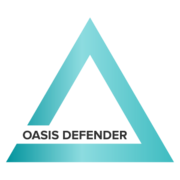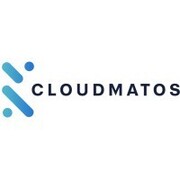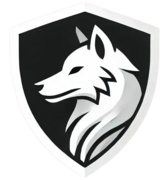
Best Cloud Security Posture Management Tools 2026
What are Cloud Security Posture Management Tools? Cloud Security Posture Management (CSPM) tools are designed to help organizations ensure the security and compliance of their cloud infrastructures. These tools are used by various departments within an organization, including IT security teams, compliance teams, and cloud operations teams. The goals that CSPM tools help organizations achieve include: 1. Ensuring cloud infrastructure security: CSPM tools provide continuous monitoring and ...
We’ve collected videos, features, and capabilities below. Take me there.
All Products
Learn More about Cloud Security Posture Management Software
What are Cloud Security Posture Management Tools?
Cloud Security Posture Management (CSPM) tools are designed to help organizations ensure the security and compliance of their cloud infrastructures. These tools are used by various departments within an organization, including IT security teams, compliance teams, and cloud operations teams. The goals that CSPM tools help organizations achieve include:
1. Ensuring cloud infrastructure security: CSPM tools provide continuous monitoring and assessment of an organization's cloud environment to identify potential risks and vulnerabilities.
2. Improving compliance posture: With regulatory frameworks becoming more stringent, it is crucial for organizations to maintain a strong compliance posture. CSPM solutions assist with automating compliance checks, enhancing visibility into non-compliant resources, and ensuring adherence to relevant standards.
3. Preventing data breaches: By proactively identifying misconfigurations or insecure practices in the cloud environment, CSPM tools can help prevent data breaches before they occur.
4. Enabling risk management: CSPM solutions offer insights into potential risks associated with a company's cloud infrastructure so that appropriate mitigation strategies can be implemented.
CSPM is closely related to other software categories such as Cloud Workload Protection Platforms (CWPP) and Cloud Access Security Brokers (CASB). While CWPP focuses on protecting workloads deployed in the cloud from threats like malware or attacks, CASBs handle governance policies for accessing SaaS applications securely. Although there may be some overlap in functionality between these categories, each serves a distinct purpose within the overall framework of managing cloud security.
Key Features of Cloud Security Posture Management Tools
Key features found in most CSPM tools include:
- Continuous Monitoring: Real-time monitoring capabilities enable organizations to detect configuration drift, unauthorized access attempts, and other potentially risky activities.
- Configuration Assessment: Automated assessments examine cloud configurations against industry benchmarks or custom-defined policies.
- Vulnerability Scanning: Scans for known vulnerabilities in cloud resources, identifies misconfigurations, and suggests remediation steps.
- Risk Prioritization: Identifies high-priority risks or security issues based on severity levels to help organizations prioritize their mitigation efforts.
- Compliance Monitoring: Tracks adherence to regulatory frameworks such as GDPR, HIPAA, PCI DSS, etc., and provides reports for audits.
- Threat Detection and Incident Response: Detects suspicious activities or potential threats within the cloud environment and enables automated incident response.
- Alerting and reporting of incidents as they occur.
Key Considerations for Potential Buyers
When purchasing CSPM tools, there are several important factors to consider:
1. Ease of Use and Integration: Look for tools that have an intuitive user interface and can seamlessly integrate with your existing cloud infrastructure. It should be able to support multiple cloud service providers used by your organization.
2. Automation Capabilities: The tool's ability to automate assessments, policy enforcement, and remediation processes is crucial in scaling security operations effectively.
3. Customizability: Determine whether the tool allows you to customize compliance policies according to your organizational requirements rather than being restricted solely to industry benchmarks.
4. Scalability: Assess if the tool can handle a growing number of cloud resources as your organization expands its use of the cloud.
5. Vendor Support and Reliability: Evaluate the vendor's reputation, availability of customer support services, and their commitment to timely product updates when considering long-term partnerships.
Pricing Information
Pricing models for CSPM tools vary across vendors but are typically subscription-based. Some factors influencing pricing include the number of assets/resources monitored or managed, level of automation provided, additional features like threat intelligence integration or advanced reporting capabilities, enterprise-level support options, and duration of contract commitments.
While vendors may not publicly display specific pricing information on their websites due to customization requirements, they often offer free trials or free versions with limited functionality so that potential buyers can assess whether the tool meets their needs. Buyers are encouraged to request custom quotes from vendors based on their specific requirements.
In general, pricing for CSPM tools can range from a few thousand dollars per year for small organizations or limited functionality to tens of thousands of dollars or more for enterprises with larger cloud footprints and advanced features. It is essential to carefully consider the features included in each pricing tier and select a solution that aligns with your organization's budget and requirements.
Cloud Security Posture Management FAQs
What do Cloud Security Posture Management Tools do?
What are the benefits of using Cloud Security Posture Management Tools?
What are the best Cloud Security Posture Management Tools?
The most popular Cloud Security Posture Management tools in the market are:
- Prisma Cloud (formerly known as RedLock)
- DivvyCloud
- Lacework
- Dome9 (now part of Check Point Software Technologies)
- CloudGuard CSPM from Check Point Software Technologies
- Azure Security Center
- AWS Config
- Trend Micro Cloud One Conformity
























